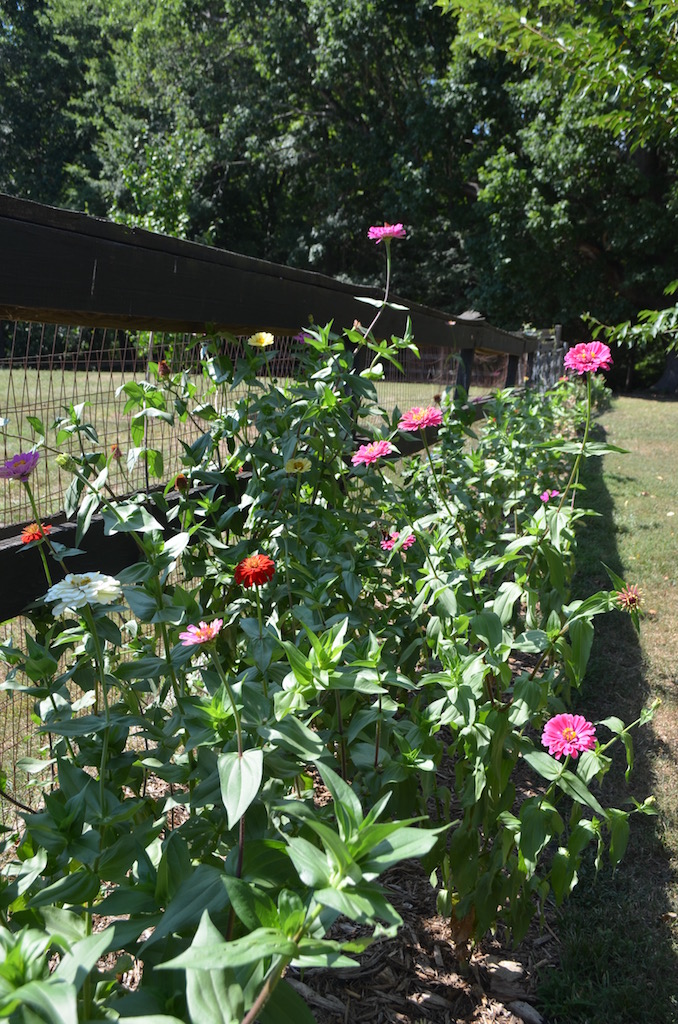As we tamed our unruly property, spiritual parallels emerged
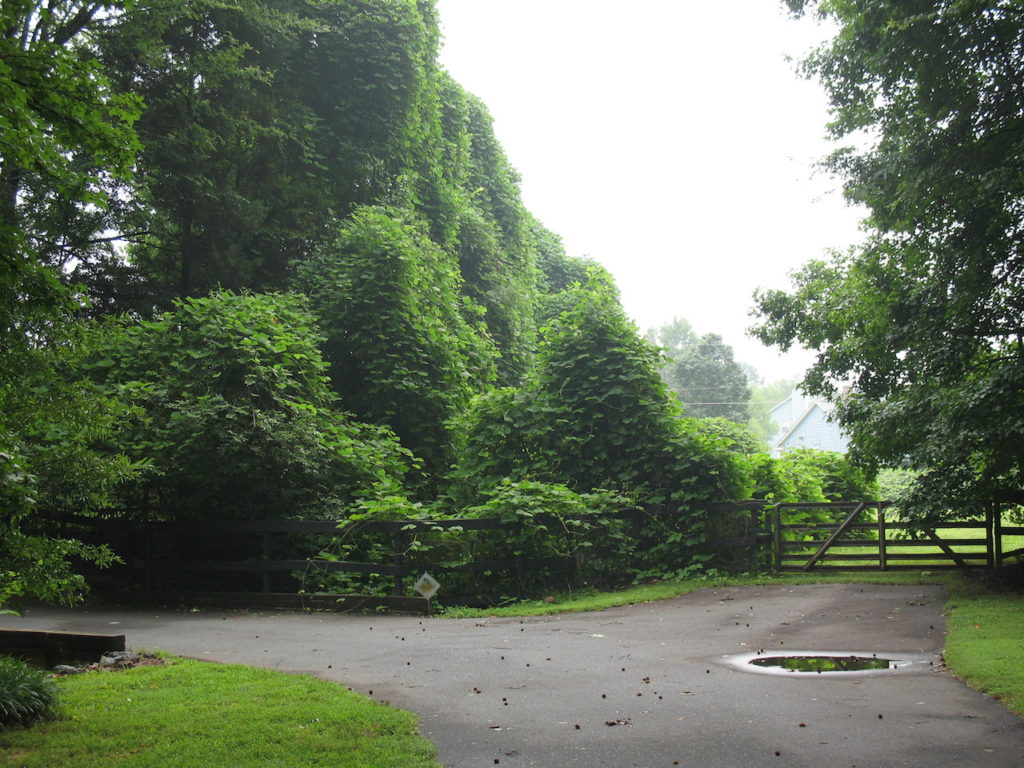
Phil looked down the hill at the kudzu tangled up in the trees along the creek and then scanned the choked trunks at the edge of the pasture. Kudzu vines poured like a waterfall over the skeletons of smothered pines. Most 60-year-old men would have called in a bulldozer. Phil is a hands-on kind of guy.
“It’s like the bamboo at our other house. I can get rid of it,” he said.
In the coming decade, kudzu and red clay would teach us many similarities between cultivating land and cultivating our souls. The stuff you don’t want grows with no effort at all. Overlook a few roots when you’re weeding, and you’ll find out they have more lives than a cat. And the flowers that look so pretty at the nursery come with specific instructions. Ignore them—for example, plant them in shade instead of sun—and your vision will wither with them.
You Have to Start Somewhere
I was searching for a house online when I came across a listing for a five-acre mini farm, complete with a tractor, pony barn, and a pigpen housing a pot-bellied pig named Miss Fancy. Not long afterwards, as I drove up the driveway to meet the Realtor, across a creek and through woods, I could hardly believe what I passed: fenced, green pastures, forests, mature azaleas and rhododendrons and dogwoods. I arrived at a spacious, mid-century house in a state of euphoria. All of this was within our modest price range? The place had never been on the market; one family had owned it. We were searching at exactly the same time they were selling, three years after the recession began in 2008.
After buying it and saying goodbye to Miss Fancy, who left with the sellers since she was actually a house pet, we named the place Windy Hill because a breeze stirred often. Phil and I knew our decision to move outside of Charlotte was kind of crazy, but we dreamed our grandchildren in town would tell stories one day about Windy Hill and that this unusual property could be put to good use for the kingdom.
We didn’t know what we’d gotten ourselves into, and knew next to nothing about gardening or taking care of land. But we had to start somewhere. Phil started with the kudzu (more about that in a minute) and I started with the beds around the house.
In a similar way, God takes us as we are, where we are. The transformation from pagan to pilgrim lasts a lifetime, with God leading us from one plot to another. Maybe it’s an area near water, overgrown and out of control; maybe erosion has left high ground bare; maybe poison ivy keeps people away. If he showed us, all at once, the task we faced, we’d give up. But he’s, sometimes waiting years to show us what needs attention.
So, we start. We start somewhere. Sure, we don’t know what we’re doing. But our fears are like those I felt as a little girl standing at the edge of the hayloft, screwing up my courage to jump into Daddy’s arms. He looked so far below, and the loft felt so high. But what a thrill to leave that platform, sail through the air, and land in those strong arms!
Clearing the Wild Areas
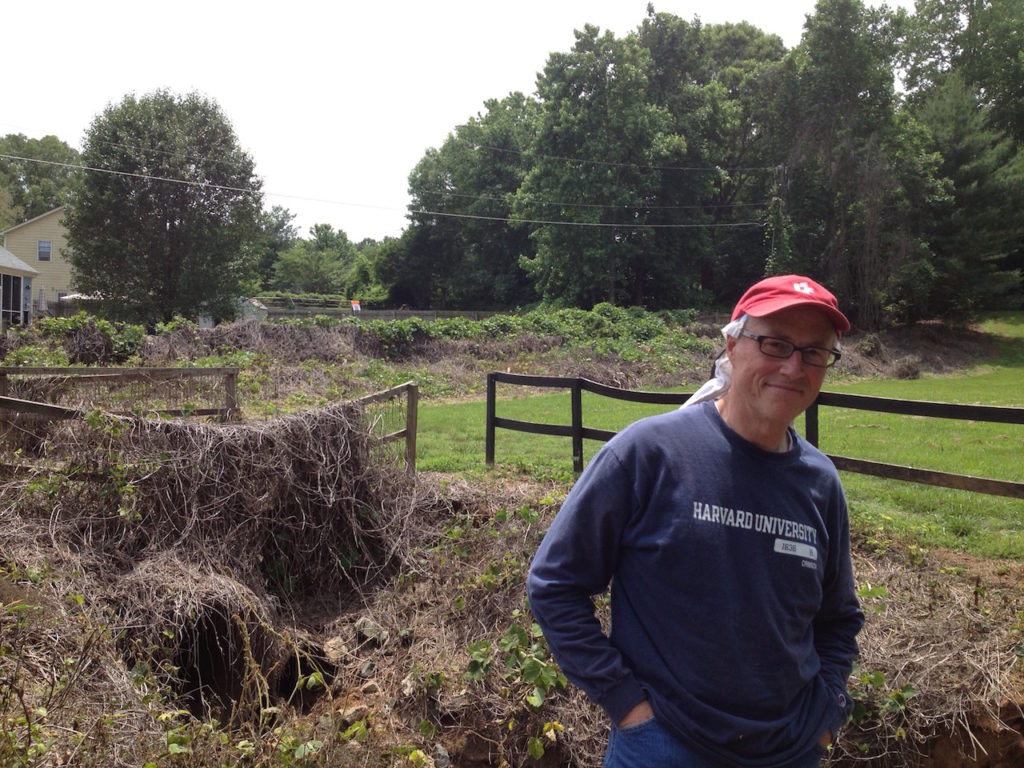
Although kudzu seems like it’s been in the South forever, it’s an invasive species that Americans first gushed over in the Japanese pavilion at the 1876 World’s Fair in Philadelphia. According to Smithsonian Magazine, the pretty vine with purple flowers didn’t gain widespread use until the 1930s. To control erosion, a government program paid farmers $8 an acre to plant it. Within a few decades, kudzu became a ubiquitous eyesore along Southern highways, sprinting a foot a day during summer months.
This was the adversary Phil faced.
Over the next three years, Phil would climb every tree along the creek to liberate limbs wrapped in thick vines. Down on the banks, they leapfrogged from one side of the creek to the other, blanketing plants and gulping down fences. He would dig up every root, including those anchored in the creek, usually thrashing the ground with a pickaxe before bringing out the shovel. He would spray every threat of assault that peered down from a telephone pole and every vine that tried to slink onto our property from under a neighbor’s fence or down a tree trunk.
I’ve tackled my own plots of dirt—Miss Fancy’s pen, which we neglected until it became overrun with small pine and cedar trees, tangled vines, weeds, and wild shrubs; the landscape beds around the house (“Nothing will grow there,” the previous owner promised); an area by an outbuilding, now a perennial garden; and a zinnia bed wrangled from pasture grass along the fence.
As I’ve worked, I’ve thought about how my own life is choked by the kudzu of sin and unbelief.
In the early years of my conversion, I didn’t understand the stubborn persistence I faced. In my ignorance, I thought clipping the vines would fix problems of the heart; for example, curtailing my speech but continuing to think the same things. But since roots kept sending out new shoots, I slowly began to realize this tactic didn’t work. Leave that root in the ground, and no matter how dead it looks, come next spring—which is to say, the right circumstances—it will be covered in green shoots.
I’ve also learned that you can’t keep God’s commands by willpower. Our will isn’t powerful enough. It’s taken me decades to understand that obedience comes from faith. You’ve got to have faith—or trust, or confidence—to yield to God’s law, which is simply an expression of who he is. His design for us doesn’t look like ours—give money away? Don’t hoard it? Love my neighbor as myself? Keep a check on my appetites? Honor the social order laid out in the New Testament letters? This type of obedience takes faith, not willpower. It’s one of the great mysteries of the gospel, and one that Paul uses to bookend his letter to Rome. He states his life’s purpose in the opening lines is “to call all the Gentiles to the obedience that comes from faith…” Sixteen chapters later, in his closing sentence, he writes that he preaches “so that all the Gentiles might come to the obedience that comes from faith…”
Without faith, it’s impossible to take the risks God asks of us: to flee sin, to do good, to take every thought captive, to resist temptation. He wants our participation in clearing out the wild areas.
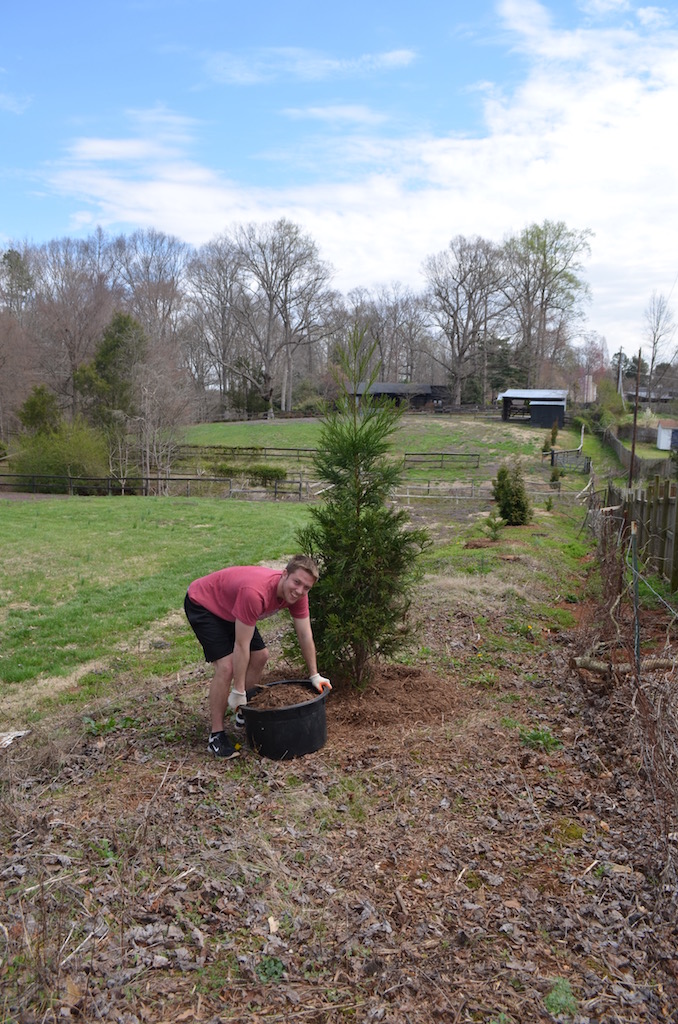
Planting Something New
The best way to take care of land you’ve cleaned up is to plant something beautiful; otherwise, it will return to its former state. The ground is prepared by chopping out weed roots, removing rocks, and adding in nourishment like composted cow manure. Later, sunlight and water will trigger growth, but in the beginning, the soil must be made ready for life.
When I was a senior in college, I bought packets of flower seeds and planted them in the clay soil by my apartment. I was so excited about the pretty pictures on the packages. Nothing happened. That was my first lesson in dirt. Years later I helped friends in their garden in Vermont during a vacation. The soil was black and rich; you could stick your hand right into it and plants grew easily. No need to hack it into submission with a shovel and hoe as we do in the South.
My college experience introduced me to the idea that seeds don’t magically grow if planted. The soil has to be right.
Dirt is the centerpiece of Jesus’s parable of the sower. In that story, the seeds scattered by the farmer are all the same; the soil determines the outcome. Seeds cast on the hard path don’t germinate and are eaten by birds. The ones on rocky soil are short-lived for lack of moisture, and the ones among thorns are choked out. Only the good soil produces a bumper crop. Jesus interprets each soil as a condition of the heart. His words are the seeds.
He is the sower, scattering his words in hearts—words that take root and change the landscape where ground is ready to be planted. Their DNA is different from what grows naturally in those places.
The germination and growth of Christ’s words is not unlike the outcome of seeds in the natural world. A zinnia seed, though a small and unimpressive flake, produces masses of blooms, with showy petals arranged in perfect circles. Or consider the seeds of the giant sequoias; they resemble flakes of oatmeal. If you’ve walked through a sequoia forest as we have, you’ve fallen silent: dwarfed by its monumentality, seduced by its fragrance, and slowed by the quietness of your footfalls on centuries of needles. A forest from a handful of seeds. What an imagination God has! He uses the plain and unimpressive to produce something extraordinary.
Today, beautiful evergreen trees border our pastures. When we planted them, we could not have imagined how large they would become in a relatively short time. Along the creek, walnut and poplar trees flourish. A blue heron visits regularly, perching on the now-visible fence, as do goldfinches, woodpeckers, and bluebirds. We are kudzu-free. Lush ferns grow in the beds around the house and a wall of fragrant jasmine separates the patio from the carport. Masses of zinnias bloom along the pasture fence in July, supplying countless bouquets.
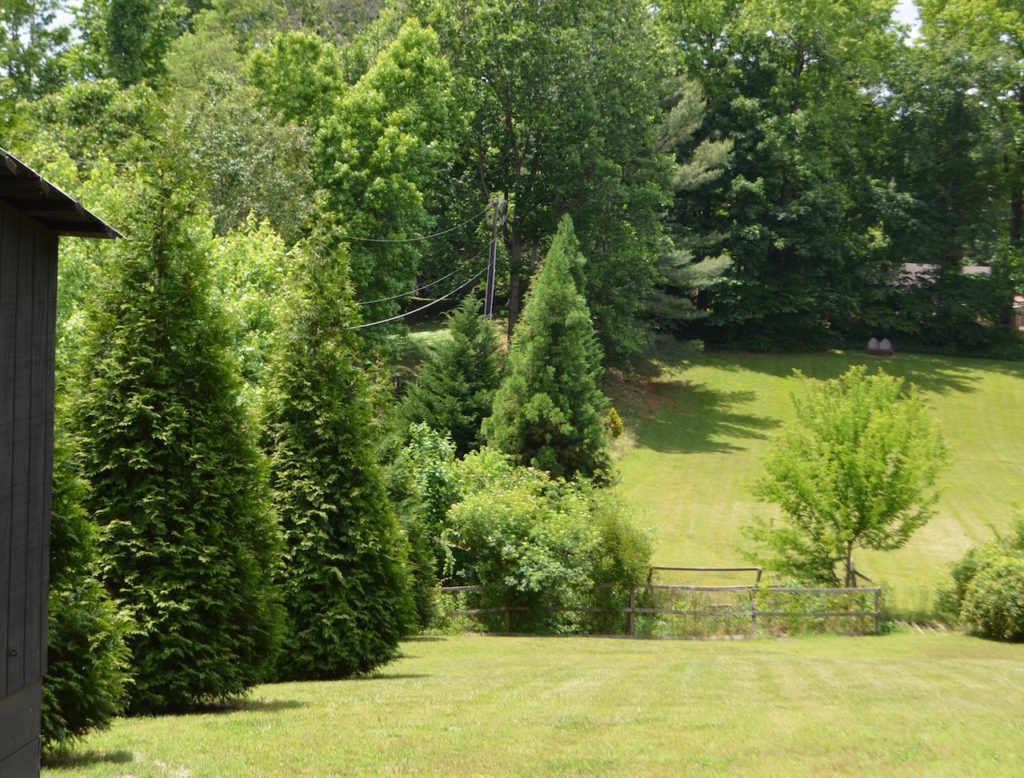
In moving to Windy Hill, we’ve encountered a natural world bursting with lessons that parallel the spiritual life.
Change begins with a decision. Something new needs to happen here. You get started.
Our lives are slowly changed by our collaboration with the Master Gardener. Tree by tree, hill by hill, and creek by creek the destructive and smothering vines of kudzu are uprooted and destroyed.
Then the ground is prepared and good things are planted: trees, shrubs, and flowers. With cultivation and perseverance, the landscape is transformed. An eyesore becomes something beautiful.
The place is the same, but the life rooted in it has changed.
